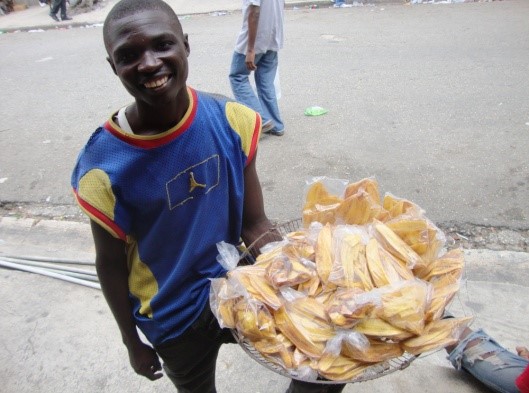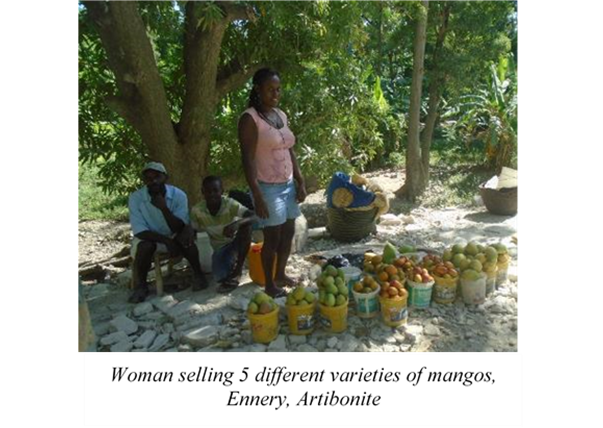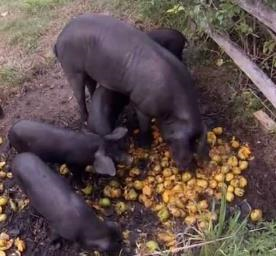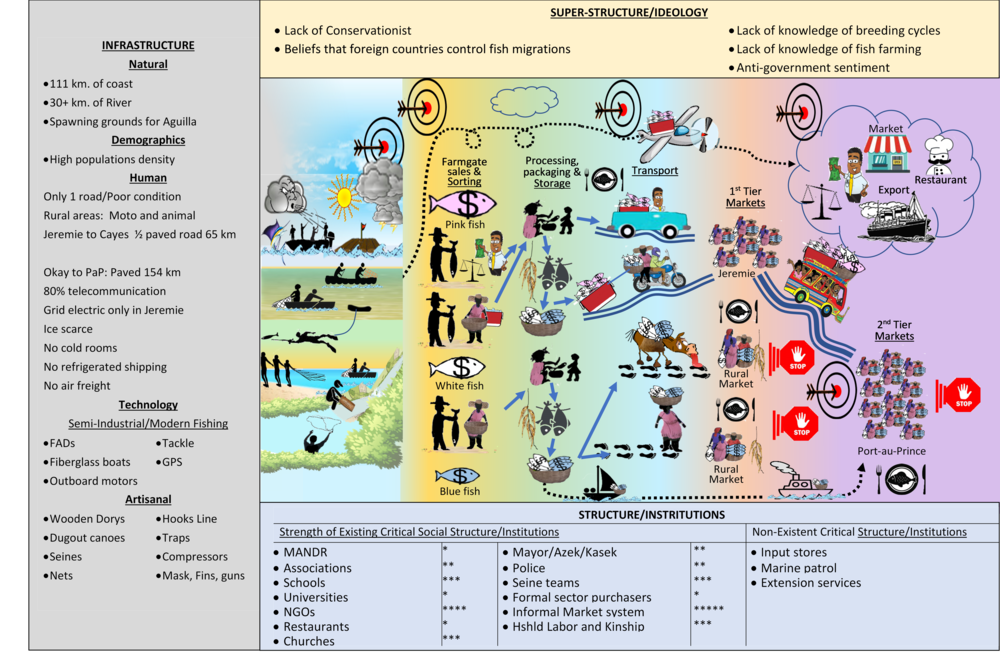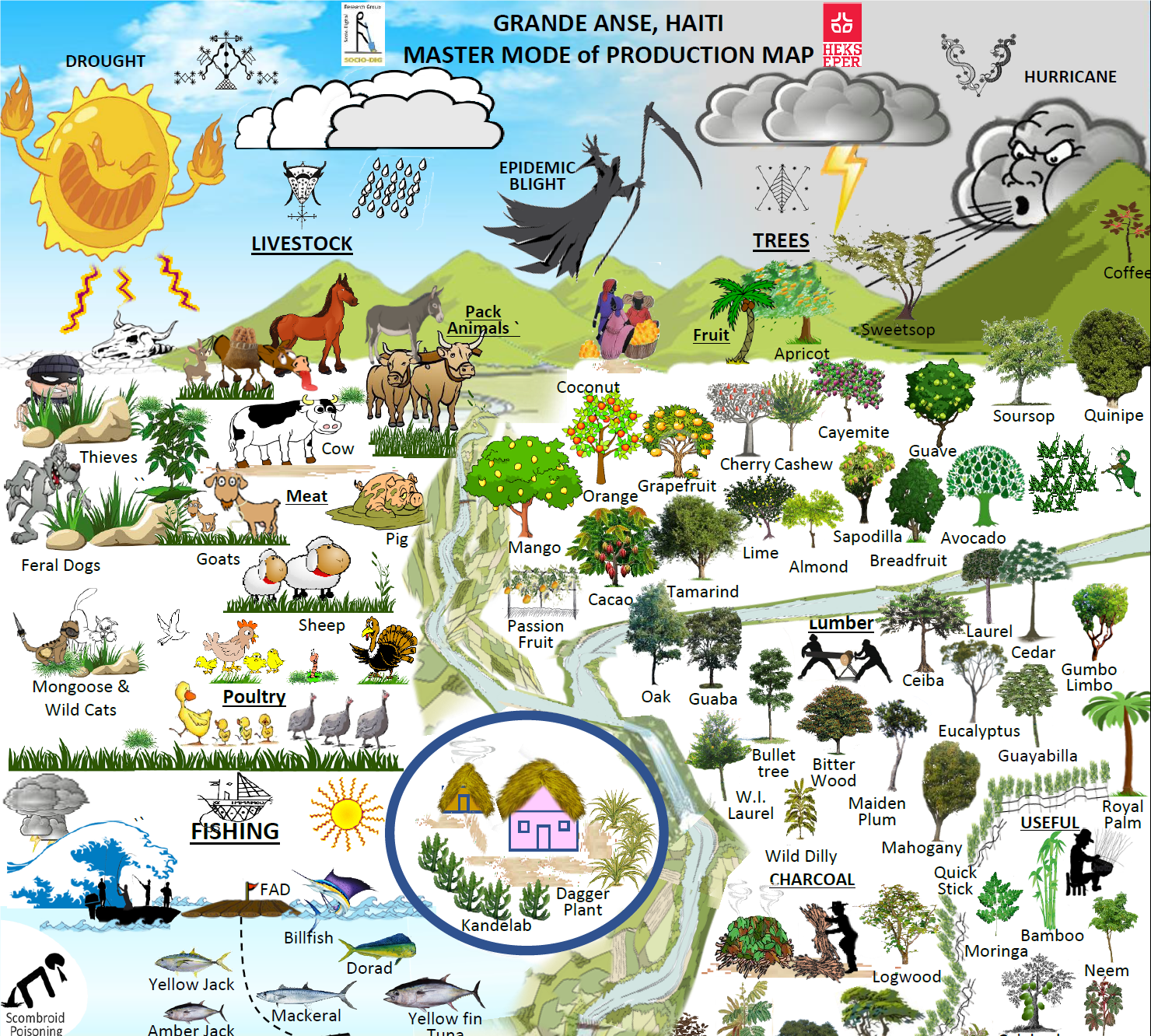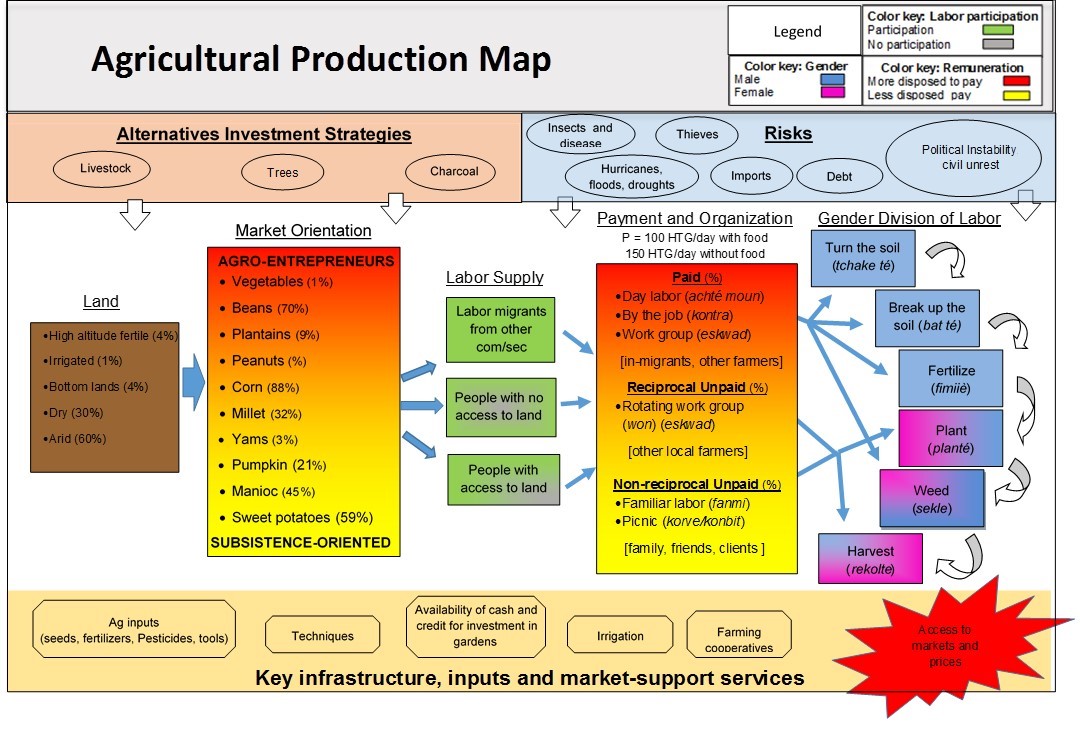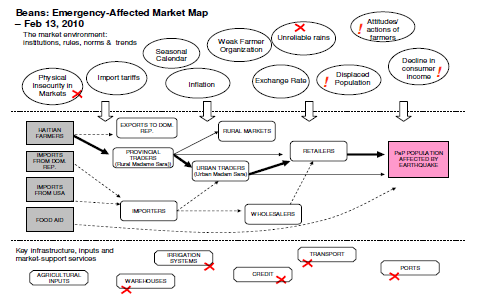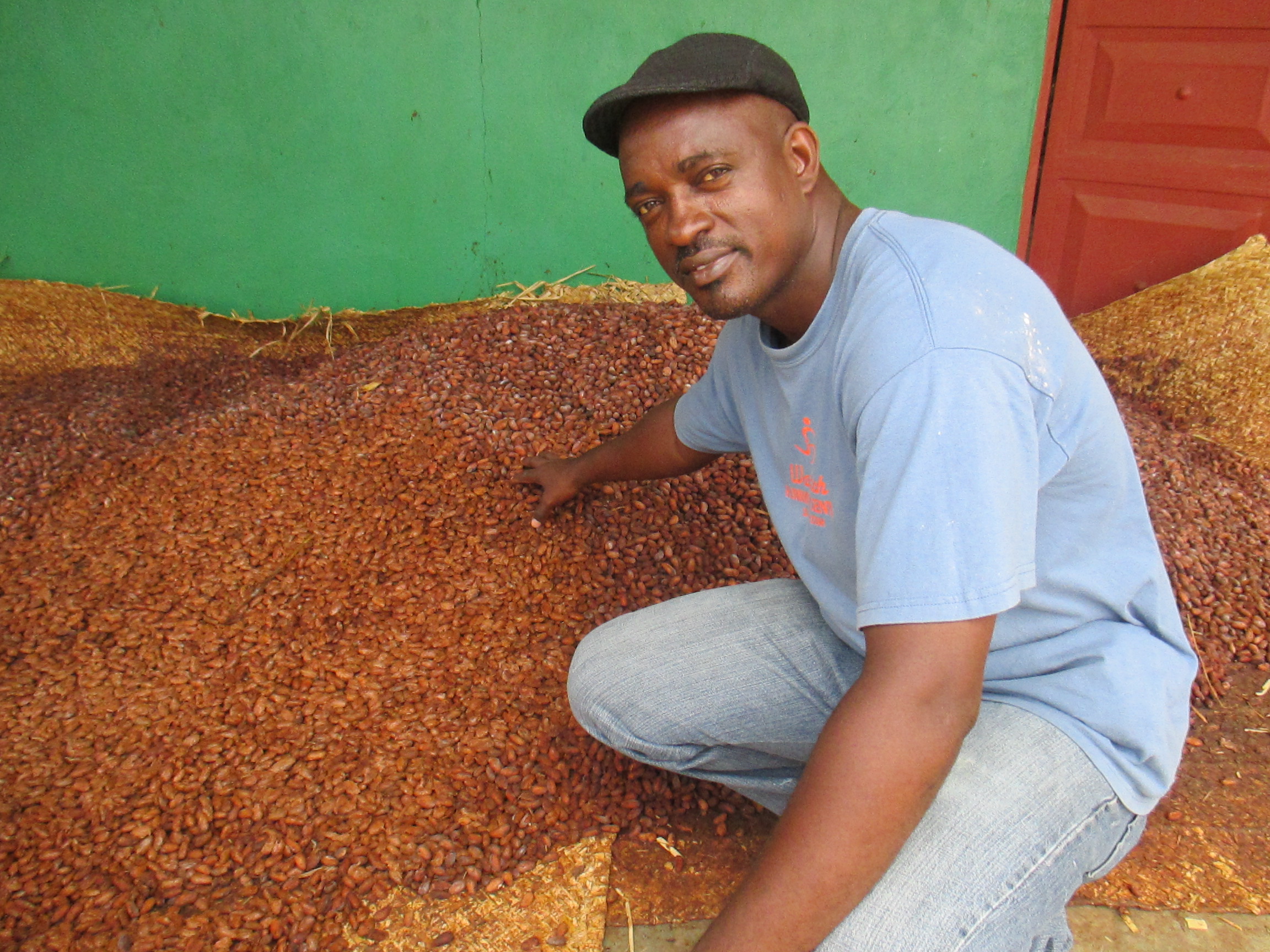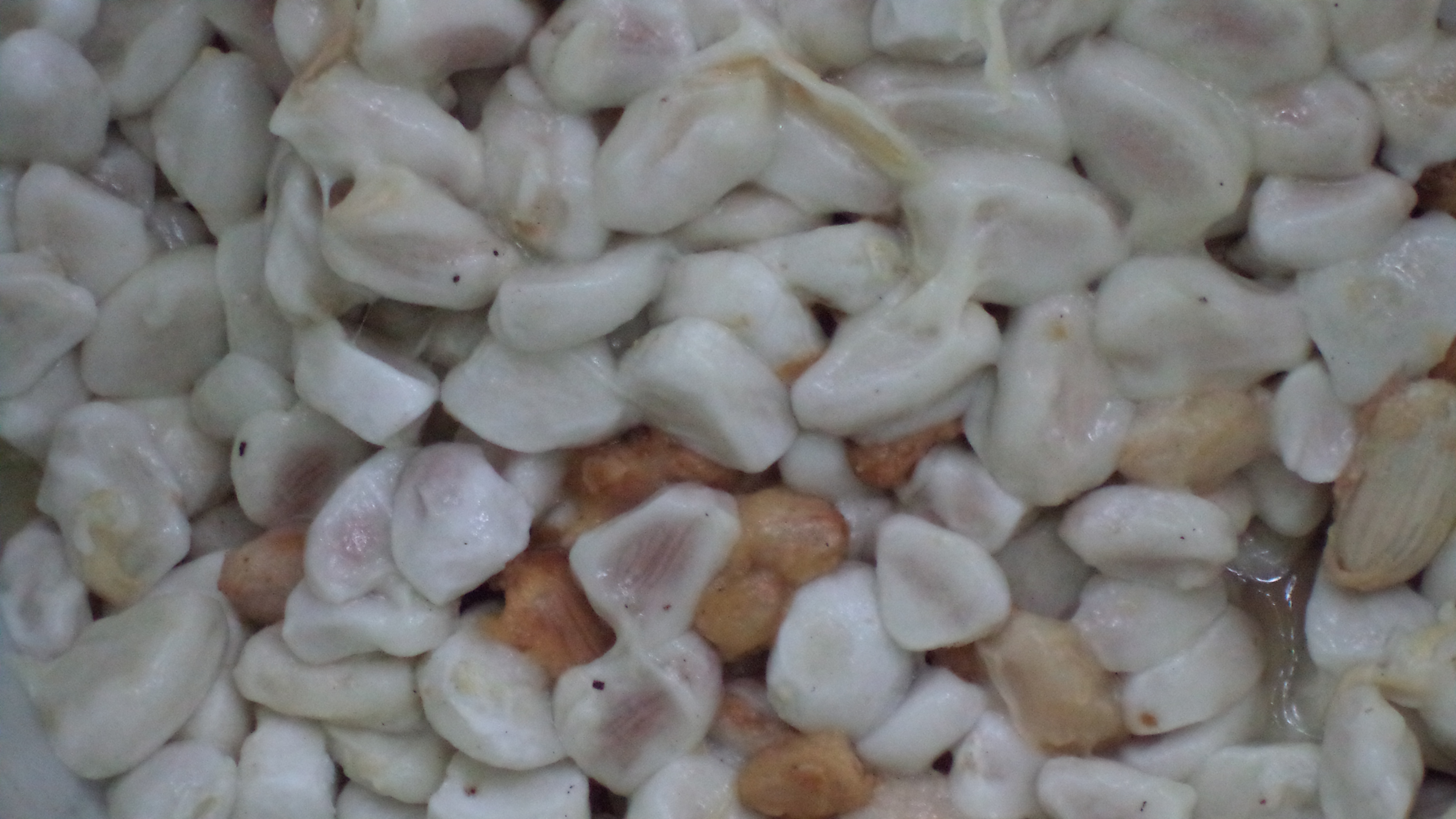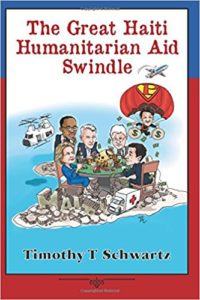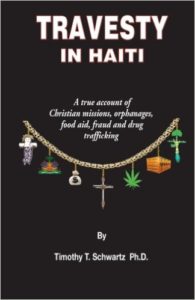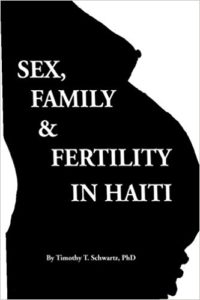Street Food in Haiti
This article describes and attempts to explain the recent growth in Haiti’s street food cottage industries. Underlying the growth in street foods is urbanization and challenges that come with it. The challenges can be summed up as, “The Food Preparation Conundrum,” which can be further broken down into problems that the the street food industryRead More
HAITI MANGO FACTS
While Haiti tree crops coffee and cacao have gone from being world leaders to close to no exports at all, mangos have gone the other direction, first becoming a Haiti export crop only in 1954 and then rising to the 2015 record season of 2.48 million boxes (4.5 kg/box). After Vetiver—contrary to claims, a veritableRead More
Mangos (TechnoServ/USAID/Coca Cola/IDB 2015)
This is an evaluation of Haiti Hope Mango Project, supported by USAID, Coca-Cola, and the IDB and implemented by TechnoServe from 2011 to 2015. The research was conducted under the auspices of Socio-Dig, a Haiti-based research company. I think the research is particularly useful for anyone interested in the Haiti agricultural sector and especially exports. The reportRead More
The Joining of Science, Art and Aid: Visual Ethnography and MEVMS (Multidimensional Ethnographic Value-Chain Mapping Strategy)
A picture is indeed worth a thousand words. What is the MEVM Strategy? MEVMS (Multi-Dimensional Ethnographic Value-Chain Mapping Strategy) is an intuitive, user-friendly research and presentation strategy for creatively documenting, organizing, understanding, and explaining Value Chain networks for a product or service that generates critical income to an economically insecure population. Data on a valueRead More
Resiklaj Digital (Digital Recycling) and a MOP (Mode of Production) Map for Rural Haiti
The imaga above–and the fuller version below–is an example of what we are calling “resiklaj dijital.” The idea first occurred to me when I was working with an organization called Ethical Fashion Initiative. Like the artisan genre from which we got the name (resiklaj), resiklaj digital involves, salvaging, cutting, and collating any medium we canRead More
Post Earthquake Jacmel (Haiti) Report and EMMA (Red Cross 2010)
The objective of the Department du Southeast study (per Scope of Work 1-2) was, expand AMAP learning about value chains in conflict- and disaster-affected environments with the goal of helping design early responses for ensuring survival (market systems could supply food and essential items or services related to priority survival needs), provide useful information forRead More
Methods: EMMA Maps for Post Earthquake Agricultural Labor in Jacmel (Red Cross 2010)
Originally published in February 2012 on Open Salon Here I share two EMMA (Emergency Marketing Map Analyses). The reason I am putting them here is because they don’t exist anywhere else. My employers for the job for which they were produced didn’t appreciate them. Apparently they didn’t approve of the use of color gradients andRead More
Methods: A Brief Critique of a Very Useful Technique: the EMMA
A Brief Critique of a Very Useful Technique: the EMMA (Emergency Market Map Analysis) An Emergency Market Map Analysis (EMMA) is a decision making strategy that early responders use in the wake of disasters such as earthquakes and hurricanes. First developed by Lili Mohiddin and Mike Albu (2008) for Oxfam, the EMMA strategy involves gathering dataRead More
Cacao Value Chain Survey Report (Root Capital 2013)
This document describes a cocoa (cocoa) producer survey of a 201 households. The survey was conducted in the Department of the Grand Anse, Haiti. The study responds to a tender from Root Capital for an investigation into cocoa production in three Grand Anse communes (counties): Dame-Marie, Anse d’Hainault, and Chambellan. Haiti_Cacao_Baseline_10_14_2014
Cacao in Haiti Surveys and Report (CRS 2014)
The research presented in this document was commissioned by CRS. The research was conducted under the auspices of Socio-Dig, a Haiti-based research company. The report is a baseline for the project, “Creating Alliances In Cocoa For Improved Access And Organization In Haiti.” The project was designed and funded by the International Development Bank with the goalRead More
